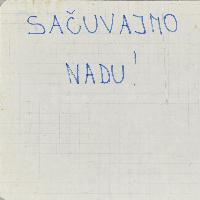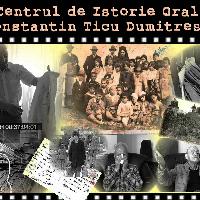This ad-hoc collection is related to the activities of the first explicitly anti-communist organisation of the post-Stalinist period that operated in the Moldavian SSR, the Democratic Union of Socialists. The materials within this collection focus on the activity of the founder and main ideologue of the group, Nicolae Dragoș, a schoolteacher who challenged the political and ideological monopoly of the Communist Party of the Soviet Union under the impact of Khrushchev’s “thaw” and aimed at creating an alternative political movement based on a platform of “democratic socialism.” The Dragoș case files, originally held in the Archive of the Intelligence and Security Service of the Republic of Moldova (formerly the KGB Archive), were transferred to the National Archive of the Republic of Moldova in 2012.
-
Vieta:
-
Chișinău Strada Gheorghe Asachi 67, Moldova
-
Temos:
-
Charakteringi eksponatai:
The collection includes different operational reports, transcripts of conversations, anonymous letters and pamphlets, as well as other written materials collected by the Croatian State Security Service during Operation Tuškanac, conducted against students and professors at the University in Zagreb in the early 1970s, based on charges of nationalist and hostile activities against the communist regime in Croatia. It was one of several operations conducted by the Croatian State Security Service against members of the Croatian Spring, a national movement which included student reform demands among its essential elements.
-
Vieta:
-
Zagreb Trg Marka Marulića 21, Croatia 10000
-
Temos:
-
Įkūrimo data:
-
Charakteringi eksponatai:
The Oral History Collection at CNSAS is a unique collection of this kind as it includes only interviews with individuals who are the subjects of personal files in the CNSAS Archives, and who after studying these personal files created by the Securitate agreed to narrate their own experience of entanglement with the secret police. The interviewees include not only individuals who were under surveillance and thus victims of the Securitate, but also individuals who collaborated with the secret police to provide information on others: family, friends, and colleagues. Both types of interviews represent the response of the interviewees to the narrative created about them by the Securitate.
-
Vieta:
-
București Strada Matei Basarab 55, Romania 030167
-
Temos:
-
Įkūrimo data:
-
Charakteringi eksponatai:
This collection consists primarily of the items confiscated by the Securitate on 1 April 1977, on the occasion of the house search and arrest of the driving force behind an emerging movement in defence of human rights in Romania, Paul Goma, a writer censored in Romania but successful abroad. A particular feature of this collection is that the confiscated items were not destroyed, but were preserved by the Securitate and finally transferred to CNSAS in 2002, from where they were returned to Goma in 2005. Thus, the collection is one of the few which travelled after 1989 from Romania into exile and is now to be found in Paris, where Goma was forced to emigrate a few months after his arrest and the confiscation of the collection.
-
Vieta:
-
Paris Rue François Pinton 7, France 75019
-
Temos:
-
Įkūrimo data:
-
Charakteringi eksponatai:
This ad-hoc collection mainly consists of documents separated from the fond of judicial files concerning persons subject to political repression during the communist regime, which is currently stored in the Archive of the Intelligence and Security Service of the Republic of Moldova (formerly the KGB Archive). It focuses on the case of Pavel Doronin, an ethnic Russian and a retired worker who was accused of „anti-Soviet agitation and propaganda” and convicted in March 1972 to one and a half years in prison, according to article 67, part 1, of the Criminal Code of the Moldavian SSR. Between 1967 and 1971, Doronin produced a series of leaflets criticising the Communist Party of the Soviet Union, which he disseminated in Chișinău and sent by post to several Soviet state institutions and factories. He also posted anti-Soviet messages on banknotes (in vanishing ink) and wrote a number of “anti-Soviet” letters and short texts which he sent to various Soviet newspapers. Some of these pieces contained open appeals to overthrowing Soviet power. Doronin’s case is revealing for the forms that individual protest against the regime – mostly based on social and political grievances – took in the late 1960s and early 1970s.
-
Vieta:
-
Chișinău Bulevardul Ștefan cel Mare și Sfînt 166, Moldova 2004
-
Temos:
-
Charakteringi eksponatai:





